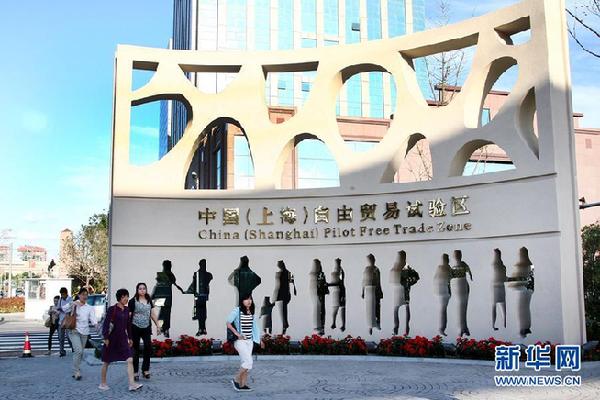Q&A for Shanghai's free trade zone
- By Zhang Rui
 0 Comment(s)
0 Comment(s) Print
Print E-mail China.org.cn, October 9, 2013
E-mail China.org.cn, October 9, 2013
|
Prices of homes and shares in companies that are located in or near the China (Shanghai) Pilot Free Trade Zone (FTZ) have surged dramatically recently, with investors holding high expectations for the potential of the zone, which is officially launched on September 29, 2013. [Photo/Xinhua] |
The China (Shanghai) Pilot Free Trade Zone was launched last month, marking a trial run for groundbreaking changes to free up cross-border commodity and capital flows in the world's second largest economy.
In 1990, Shanghai set up the Waigaoqiao Free Trade Zone. The new Pilot Free Trade Zone will be an upgrade of that zone, which not only opens up cargo trade, but also opens the door to the service industry and more.
The free trade zone has the task of exploring the boundaries of reform. It is very significant as the government introduces the concepts of a "negative list," "competitive neutrality" and interest rates liberalization.
Here follows the answers to 20 questions concerning Shanghai's new free trade zone.
Q: What is the bonded zone?
A: A bonded zone is a special trade zone created within domestic areas. It has special arrangements for customs duties, import/export duties and several supervision approaches. For example, foreign goods can enter the region without paying duties, be kept bonded. The manufacturing and trade inside the zone can be exempt from value added and sales taxes.
Q: When was the first bonded zone set up on the Chinese mainland?
A: The Waigaoqiao Free Trade Zone, which was set up in Shanghai in 1990, is the first bonded zone on the Chinese mainland. In 2012, the zone completed a fixed investment of 2.536 billion yuan, while its total fixed assets throughout the years were valued at 43.8 billion yuan. The zone has roads of a total 67 kilometers in length and public greenbelts covering 350,000 square meters, as well as construction areas of 8.25 million square meters.
Q: What will happen when cargo comes to the zone?
A: When freight reaches the zone, under the bonded status, it can be developed, processed, stored, exhibited, redid, categorized and mixed. It can be imported into China after paying duties or shipped out of China without paying duties.
Q: When there is already a bonded zone in China, why create a free trade zone now?
A: The bonded zone is helpful for the free trade of goods, yet the free trade zone particularly emphasizes expanding the opening-up of the service industry.
Q: What is the difference between a free trade zone (FTZ) and free trade area (FTA)?
A: A free trade zone (FTZ) is an area set up in a sole country or region within which goods may be landed, handled, manufactured or reconfigured, and re-exported without the intervention of customs authorities. It is set up with the aims of lowering international trade cost and boosting export and international investment.
A free-trade area is a trade bloc whose member countries have signed a free-trade agreement (FTA), eliminating tariffs, import quotas and preferences on most (if not all) goods and services traded between them. It is a win-win trade policy for all parties involved.
Q: Where is the Shanghai Pilot Free Trade Zone?
A: It consists of the four following existing bonded zones:
- Waigaoqiao Free Trade Zone;
- Waigaoqiao Free Trade Logistics Park;
- Pudong Airport Comprehensive Free Trade Zone;
- Yangshan Free Trade Port Area.
Q: How big is the Shanghai FTZ?
A: It covers an area of 28.78 square kilometers, almost the size of Macao (29.9 square kilometers).
Q: What are the tasks for the Shanghai FTZ?
A: Accelerate the function and obligation transformation of the government;
- Further open up investment sectors;
- Pushforward the transformation for trade development approaches;
- Deepen the opening-up of the financial services sector;
- Improve and perfect the legal system







Go to Forum >>0 Comment(s)